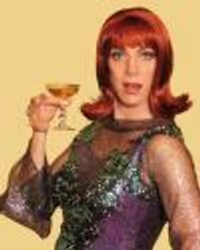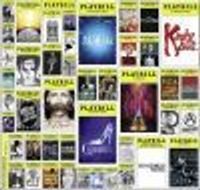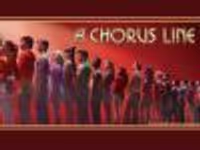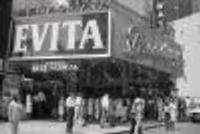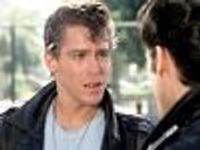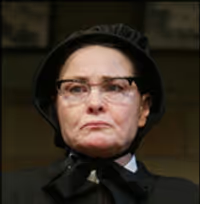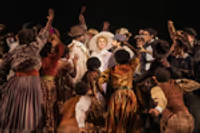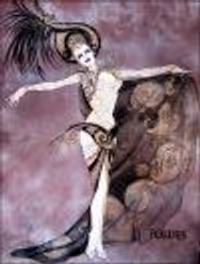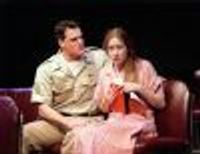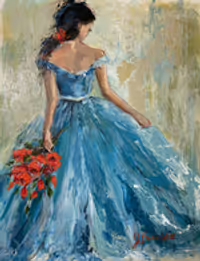WATER FOR ELEPHANTS Broadway Previews
#75WATER FOR ELEPHANTS Broadway Previews
Posted: 3/1/24 at 5:32pm
FYI ---- tonight's performance Friday 3/1 has been cancelled for technical reasons. Both Saturday perfs are planned to go on as scheduled
Voter
Broadway Star Joined: 5/19/20
Jarethan
Broadway Legend Joined: 2/10/11
#77WATER FOR ELEPHANTS Broadway Previews
Posted: 3/1/24 at 6:53pm
BroadwayNYC2 said: "Tell that to the Aaron Tviet fans behind me."
Interesting. The very first time I ever heard what I would consider to be overenthusiastic fans was when I saw Catch Me If You Can, with Aaron Tveit. When he came out with his shirt off, the 4 young ladies behind me acted like raving idiots. Their actions throughout the show actually distracted my wife so much that she didn't enjoy the show. I assured her that she still would not have liked it if there were no overzealous fans in the theatre at all..
#78WATER FOR ELEPHANTS Broadway Previews
Posted: 3/1/24 at 7:22pm
The8re phan said: "FYI ---- tonight's performance Friday 3/1 has been cancelled for technical reasons. Both Saturday perfsare plannedto go on as scheduled"
Was planning to rush tomorrows matinee, but just went by the BO and they said the issue was still not fixed so they were not completely sure if the matinee would happen or not yet. Changed my plan to Sunday
#79WATER FOR ELEPHANTS Broadway Previews
Posted: 3/1/24 at 8:14pm
Yikes. This show is cursed.
ps27b
Understudy Joined: 5/10/04
#80WATER FOR ELEPHANTS Broadway Previews
Posted: 3/1/24 at 8:41pm
I have seen the show twice and will start off by saying I really liked it a lot. And the second time it felt like they had made some changes that improved on what I felt was a great first preview. I also felt like the score worked better too - although I couldn't pinpoint why. As I have said before, I am not a professional in the field. That said, If I was directing, I would cut the speakeasy scene and the bedroom scene and find another way to share the important info in these scenes. I would also just delete the moment when the elder Jacob pulls a toy train across the stage. That said, I really did love the show and my thoughts may not be on point at all. Plan to see it again when it opens.
willep
Broadway Legend Joined: 9/20/08
#81WATER FOR ELEPHANTS Broadway Previews
Posted: 3/1/24 at 9:46pm
ACL2006 said: "Yikes. This show is cursed."
Lolol
#83WATER FOR ELEPHANTS Broadway Previews
Posted: 3/1/24 at 11:03pm
BrodyFosse123 said: "Their Plan B: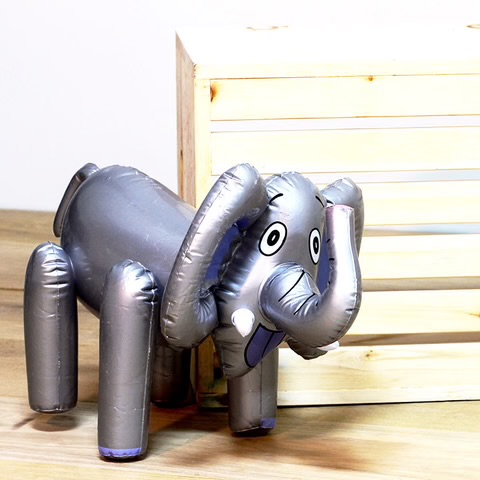 "
"
Not far off from their Plan A, honestly.
RUkiddingme
Broadway Star Joined: 12/9/11
#84WATER FOR ELEPHANTS Broadway Previews
Posted: 3/2/24 at 12:28am
ps27b said: "I have seen the show twice and will start off by saying I really liked it a lot. And the second time it felt like they had made some changes that improved on what I felt was a great first preview. I also felt like the score worked better too - although I couldn't pinpoint why. As I have said before, I am not a professional in the field. That said, If I was directing, Iwould cut the speakeasy scene and the bedroom scene and find another way to share the important info in these scenes. I would also just delete the moment when the elder Jacob pulls a toy train across the stage. That said, I really did love the showand my thoughts may not be on point at all. Plan to see it again when it opens."
I saw the show earlier this week. I don't even remember a speakeasy scene! Was there just one bedroom scene? I can't remember. Was there a toy train?
I remember acrobatics all night.
#85WATER FOR ELEPHANTS Broadway Previews
Posted: 3/2/24 at 12:49am
Cape Twirl of Doom: Melissa25 said: " There’s supposed to be a dog that gets passed around that reminded me of my bathroom rug. It didn’t have a face."
Hmm. Were you sitting far back? I was in front mezz and saw it's face very easily. I also thought it was a neat looking puppet and liked how it was animated to look alive.
I really enjoyed this show! I thought the circus acts and acrobatics were outstanding and there were several death-defying moments where I gasped. (The pole.) Yeah I guess if you're not into Cirque-type shows this isn't for you, but I love that stuff and really had a great time with this one.
The show certainly isn't perfect. I didn't like the framing device, it's the same problem I had with Harmony. I don't care at all about the old person looking back on their life. Every time it cuts to them, the action stops dead and I want to return to the 1930s story. Just tell the main story and stop including the same tired framing device!
Unlike many shows, IMO the first act is better because it's more about the circus and spectacle. The second act has too many slow songs about the couple that started to bore me.
The music was fine. It seemed to fit the style of show well, aside from those slow dirges in Act 2. The bed scene in particular, ugh, get rid of it.
Despite those complaints, overall I did really enjoy it, and I am a bit surprised by all the negative comments here.
"It's Phantom meets Hamlet... Phamlet!"
I was in the rear side orchestra so maybe that’s why I couldn’t see the puppets face. I’m glad that you enjoyed it. I agree that Act 1 was definitely better than Act 2 but I thought the bed scene had one of the better songs (Wild). And yes yes yes to less of Mr. Jankowski. Especially that little dance he does opening Act 2. Major snip please. I would have liked Marlena’s character to be fleshed out a bit more. I would definitely cut the speakeasy scene and the parents in the car scene which was confusing. The scene with Jacob and some of the acrobats running to catch the train did not work. I got very tired of those two metal scaffolds that were supposed to be trains. Stan Brown and Sara Gettelfinger were very good so give them more to do if possible.
#86WATER FOR ELEPHANTS Broadway Previews
Posted: 3/2/24 at 1:47pm
Seems like the matinee is going on today.
#87WATER FOR ELEPHANTS Broadway Previews
Posted: 3/2/24 at 5:54pm
When the light up proscenium with the vintage circus posters is the best part of the show…
As a fan of both the novel and the film, I have to say I found this stage adaptation to be pretty dreadful. The cast does what they can, but when the book and score are this weak and the physical production itself is this dirt cheap/nonexistent, there’s only so much they can do.
The score is so one note, and the lyrics are truly terrible. Everything about the score from the orchestrations to the songs and lyrics are repetitive. The second act duet “Wild” between Jacob and Marlena felt like it would never end. It went on and on and on. The pacing is sluggish. The first act is LONG, and the second act feels long and drags. The show is currently clocking in at two hours and forty five minutes, and I felt every single minute.
The physical production is basically nonexistent. A few tattered soft drops and a giant LED screen make up the set. The animal puppetry is laughable. Between The Lion King, War Horse, and Life of Pi, Broadway has already had its fair share of cool animal puppetry. If you’re going to do animal puppets, the bar has been set. The puppets here look like they were made in a second grade craft class.
Needless to say, this was a colossal disappointment for me. Sure, the acrobatics and circus stuff are cool, but there’s not a ton of it, and it’s kind of overshadowed by how abysmal everything else is.
#88WATER FOR ELEPHANTS Broadway Previews
Posted: 3/2/24 at 6:56pm
Any photos of the puppet(s)? It feels like they are embarrassed and trying to hide how bad they are.
#89WATER FOR ELEPHANTS Broadway Previews
Posted: 3/2/24 at 8:39pm
bwayphreak234 said: "When the light up proscenium with the vintage circus posters is the best part of the show…
As a fan of both the novel and the film, I have to say I found this stage adaptation to be pretty dreadful. The cast does what they can, but when the book and score are this weak and the physical production itself is this dirt cheap/nonexistent, there’s only so much they can do.
The score is so one note, and the lyrics are truly terrible. Everything about the score from the orchestrations to the songs and lyrics are repetitive. The second act duet “Wild” between Jacob and Marlena felt like it would never end. It went on and on and on. The pacing is sluggish. The first act is LONG, and the second act feels long and drags. The show is currently clocking in at two hours and forty five minutes, and I felt every single minute.
The physical production is basically nonexistent. A few tattered soft drops and a giant LED screen make up the set. The animal puppetry is laughable. Between The Lion King, War Horse, and Life of Pi, Broadway has already had its fair share of cool animal puppetry. If you’re going to do animal puppets, the bar has been set. The puppets here look like they were made in a second grade craft class.
Needless to say, this was a colossal disappointment for me. Sure, the acrobatics and circus stuff arecool, but there’s not a ton of it, and it’s kind of overshadowed by how abysmal everything else is."
I saw this on Wednesday night, and agree with so much of what you said. That duet in the bedroom in act two was DREADFUL - but then again I found just about every song to be just as bad. There were a few instances in the second act where there was quite a bit of laughter at things that were definitely not supposed to be funny.
And that Elephant's head... yikes. I actually thought it was so much more effective and actually a bit sweet when it was just the trunk peeking out from behind the curtain. The full puppet was definitely a let down. Overall I was so disappointed to see how this turned out as I *really* like the story.
PipingHotPiccolo
Broadway Legend Joined: 6/13/22
#90WATER FOR ELEPHANTS Broadway Previews
Posted: 3/3/24 at 12:14am
recommended: seeing all these horrible reviews so your expectations are basement-level, because then the show isnt half-bad.
its definitely not great. the score is bland (only Easy, in Act 1, was at all memorable) and the framing device, love story, hokey supporting characters---we've seen this 100 times before. so no it isnt groundbreaking.
but Gustin and McCalla are appealing and sound great. Paul Alexander Nolan is outstanding. and the three of them make a somewhat believable, and at times interesting, love triangle. (only Nolan is given anything really compelling to sing or move to). The acrobatics were impressive- audience pleasing and genuinely breathtaking at times. I agree that the elephant is a let down if you've seen what they did with Life of Pi (there's something so muted about its color/texture, its such an odd choice by the design team here) but it definitely moves and emotes. Much more successful was the horse in Act 1--that entire sequence was beautiful.
so it has its moments, and im glad i saw it (albeit from a "partial view" seat on the extreme right). Yes its derivative of a million other shows (Pippin, Bright Star, the Notebook, Harmony, all came to mind) but its pieced together fine. It doesnt deserve any big awards but it isnt the joke/shambles its being portrayed to be here.
the audience (which included a few children that did not belong there) was very receptive, although the theater was no more than 3/4 full. i do not see this getting rave reviews, and i dont think Gustin or this old movie title will be enough to fill the Imperial- a smaller theater would have been a safer bet, and would have suited these sets/props better.
#91WATER FOR ELEPHANTS Broadway Previews
Posted: 3/3/24 at 1:04am
Does anyone know why the preview was canceled Friday night? All they have said is "technical issues". It's not like there are major automated set pieces in the show, so I'm curious.
yyys
Broadway Legend Joined: 6/29/14
#92WATER FOR ELEPHANTS Broadway Previews
Posted: 3/3/24 at 8:41am
It was enjoyable but probably not going back.
Paul Alexander Nolan is probably the only one that will end up with an acting nomination.
I'd say this will last 9-12 months on Broadway.
DaveyG
Broadway Star Joined: 8/11/05
#93WATER FOR ELEPHANTS Broadway Previews
Posted: 3/3/24 at 9:26am
yyys said: "I'd say this will last 9-12 months on Broadway."
According to Philip Boroff at Broadway Journal:
"Scheduled to open March 21, 2024, at the Imperial Theatre, it will need to sell at least $960,000 of tickets each week to cover operating expenses, according to an internal budget prepared over the summer and reviewed by Broadway Journal."
With a 960k breakeven, I think they'll be lucky to make it through the summer.
#94WATER FOR ELEPHANTS Broadway Previews
Posted: 3/3/24 at 9:30am
I think this will have a very similar trajectory to the Imperial's last tenant, Bad Cinderella, and shutter in June after not getting many (if any) Tony nods.
#95WATER FOR ELEPHANTS Broadway Previews
Posted: 3/3/24 at 9:32am
PipingHotPiccolo said: "recommended: seeing all these horrible reviews so your expectations are basement-level, because then the show isnt half-bad."
Lol... Will keep in mind. I'm doing a chick-flick trip in a couple weeks. This & Notebook - which I didn't really want to see (neither the book nor the film is my cuppa tea), but if this is going to win for Best Musical, I'll kick myself for not at least trying!
Trying to stay optimistic!
#96WATER FOR ELEPHANTS Broadway Previews
Posted: 3/3/24 at 11:06am
^ There is zero chance this show wins best musical. Just a FYI for when you see it.
The puppets here look like they were made in a second grade craft class.
Savage but accurate. How much did this cost? 25 million? I don't understand where all that money went since it didn't go towards what anyone is seeing on stage. Wild.
Just CJ
Swing Joined: 3/4/24
#97WATER FOR ELEPHANTS Broadway Previews
Posted: 3/4/24 at 12:10pm
First time posting! I saw it yesterday, and to be quiet frank, I feel like I saw a completely different show than many of the people here. While it isn't ground breaking by any means and there a few issues I had with it, I still found that overall it worked very well in accomplishing what it was trying to do, and there wasn't one moment I was unsure of what this production was
I felt the show had a very, very clear direction in what it was trying to accomplish and do with this show, and I felt that all the choices made (outside of some of the numbers whoops) made total sense- From the set design, the puppetry, the acrobatics, etc. It all felt intentional and I never for a moment did I feel like I didn't understand why the show looked and felt the way it did. I was admittedly little hesitant at the end of Act 1, and while I enjoyed it I could easily see it ended up unsatisfying and messy and leave me feeling overall negative about the show- But I feel everything from Act 1 came together so well in Act 2 that I am glad I had reserved my full judgement and didn't let my critiques sit in my head too much until the show ended. To me, it is a great example of the whole is greater than the sum of it's parts.
I can't explain fully why to any of this without going into details of the whole show, so I will try to spoiler tag the rest. I apologize in advance if I mess it up and will try to fix it ASAP.
The things I disliked:
I mostly agree with those who found the score lacking. While I wasn't quite as low on it as many are and I liked more the music of the songs than not, I do think that overall the lyrics were week. There were some I did enjoy, but more often than not I found them either basic and bland, hokey, or actually painful. The peak was when an Ode to an Elephant's music started. I hadn't looked at the number list for each act, so I didn't know what to expect going in. Between what was happening in the scene and the musical cues, it was incredibly obvious to me that an ode was coming. And I was excited, I love a good ode. But the first line of the song started with "It's an ode" and I actually cringed in my seat, and it completely pulled me out of the moment. While that was the worst, I do feel a lot of the songs were just.... telling us things we already know or could tell already, and weren't adding anything new. This wasn't always the case, I found "You've Got Nothing" a great, chilling number (seriously, Paul Nolan is SO good in this). And I think it was a part of of The Grand Spec, the melody and bit of "You want to see something..." that I truly loved and thought it was used effectively- I just wanted more of that level in the rest of the score, but it is definitely missing. But it was catchy enough that I don't absolutely hate it, just don't think it is did the show justice.
The book itself isn't anything fresh or exciting. I do think it had a tight scope and didn't meander off, which is greatly appreciated. I have never seen the book or movie, so I don't know how it is as an adaptation. I did some read some summaries and I do think they made some changes I think were for the better (Instead of August and Jacob/Marlena physically fighting during the stampede before Rosie kills him, it's changed slightly to be more symbolic of his loss of control/trust of his circus, which we knew was coming so we didn't need a whole lot of time to sit on that moment). I didn't think it was bad, but if you are looking for a book that is unique and moving and makes you rethink anything about the human condition, Water for Elephants will disappoint.
I also found that Jacob and Marlena were incredibly simple characters with nothing much to give the actors to work with. Again I don't know how much of this was from the source material and or things lost in the adaptation, but the leads are just such nothing of characters. They aren't bad characters per say, they are just flat. Both are just good people the whole time, with the only real obstacle is an outside force. Even the emotional cheating/kiss is waved off by the fact that August is abusive, particularly physical.
And this is one of my other issues, but I do know it comes from the source material and I find that really unfortunate. I never want to make light of domestic violence or abuse, and I do think stories around that deserve to be told and heard. But when abuse or domestic violence is not truly the central core of the story/or if the story would not change at all if the abuse was taken out, and it just a tack on to signify to the audience that "Hey, this person is Bad!", it feels incredibly lazy. I also think it robs the audience of grappling with a nuanced antagonist and determining for themselves how they feel about the characters motivations and choices. Like abuse or domestic violence is such a terrible thing that is never justified, and that becomes the reason to dislike a character. And August as a character is already so nuanced and layered that the abuse rips all of that away and just makes him The Bad Guy. I feel the book would be strengthened SO much if August was just greedy, controlling, cruel, and desperate. Because these things, in the setting of the Great Depression are more complex than in a lot of other settings. August clearly has some amount of care for his circus, but not enough to not hoard money to spend on himself and Marlena, and by extension Jacob. He cares about the animals, but only to a certain extent to make money. I don't think he needed to be abusive for us to believe that he was capable of ordering Wade to murder Walter and Camel. His cruelty in ripping Wade to shreds would have been far more impactful if we didn't get to see the full lows he was willing to go before hand. By abusing Marlena, we are told that he is capable of doing this quite early on- Instead of showing us by letting the audience sit and linger and wonder just how bad of a man he is until he truly breaks.
Ok that was more than I thought it would be, but I promise I did like the show!
The things I liked:
Going into the show I tried to keep my expectations open about the show. I think that helped me enjoy the design aspects of the show a lot. It's hard to go into a show with no expectations, and more often than not seeing a show is dictated by what I have heard, good or bad, about a show (See: Bad Cinderella). For example, nothing about The Notebook is exciting for me or seems like anything I would enjoy seeing. If eventually see it it will be purely out of obligation/intrigue if the reviews come out as good and I will go into it expecting it to be bland and boring. For Water for Elephants I went in totally blind. I did not read the book or see the movie, and only knew the that it was set in a circus and it was a love story. I did no research into the production at all, other than a few friends in Atlanta telling me the show had some flaws but they enjoyed it. And all of that definitely impacts my perspective on the show and the things I liked about it.
I absolutely adored the set design because I think it fit the construction of this world perfectly. It's a piece that is told by memory- and the memory of a man at the end of his life at that. Memories are fickle, details fall away, the truth becomes murky. And while this is not a theme of the show, I think the production did a great job of creating that dream-like feeling. I felt that the set being more bare bones, the acrobatics coming in and out of importance, and the puppetry being scaled back, the lightening effects, etc. allows the audience to use their imagination to fill the gaps. It invites the us not only see what is happening on stage, but also creating your own version in your mind's eye to fill it out- Something that I think is difficult to achieve in theater and I think the show did very well. I do understand that this kind of thing might not be everyone's cup of tea, and might prefer a more straight forward approach to storytelling and design- Which is totally fine and valid! But I don't think Water for Elephants ever intended to be straightforward like that, and I felt like I understood that immediately from the start of the show.
Every use of shadows was great, and fit the moment and the show perfectly. I get why people might be disappointed with the puppetry, but I honestly wouldn't have wanted it any other way. Lion King levels of puppetry would not fit the tone the show was going for at all. I personally can't imagine intricately designed puppets would be able to have the surrealist effect the show was clearly going for- The fluidity between the actors and the animals I think hinged on it being exactly what it was. I thought the horse aerialist was absolutely stunning and both of the those scenes were highlights for me- Not just for the acrobatic feats, but how well it blended in and out of the puppetry. Showing Rosie piece by piece was a great choice, and built a lot of anticipation to the full reveal. I thought Rosie was gorgeous, and fit the show better than I could have expected. I think for me, I care more about coherence than quality- so given how everything else had been set up and designed, I was thrilled with the puppetry because it fit so perfectly to me. Now, whether this justifies the insane cost of production is an entirely different story. I'm not knowledgable enough about the business side/financial side of Broadway productions so I can't get too in depth into that. I think it is totally valid if for some the cost of production compared to what is on stage is disproportion to the point of impacting how they feel about the overall show. And I do think it's fair if the show didn't live up to your expectations going into it for that or any other reason- I just don't find myself in that camp.
I also thought the use of acrobatics was great and incorporated perfectly. It wasn't until the end of the show until that came together for me though. I think it is unfair to compare the acrobatics in Water for Elephants to Pippen, because I think they have totally different purposes in the show. Pippin in of itself is a blank canvas. Creating a theme in the design is essential to helping convey the message and story of Pippin. Choreography is a huge part of this as well, and the acrobatics were totally incorporated into it.Throughout the whole show, the acrobatics were essential in conveying the messages, representing character feelings and thoughts, conveying scene, etc. The revival was built around the acrobatics as a part of the storytelling. And they don't have that same purpose in Water for Elephants in my opinion. The acrobatics are intended to help flush out the scenery, not be the scenery. They serve to help paint the backdrop of the circus and remind of us where we are. It helps us paint the image of our mind about what we are seeing in this show. That's why I enjoyed so much of the acrobatics not being front and center, but in the background. With a scaled down design that is intended to help us imagine this scene that can't truly be replicated on stage, the acrobatics served to anchor us in the circus and not lose that aspect of the show. But the acrobatics were not just background- there were moments that they were critical to a moment. Everything with Starlight is a great example- The aerial acrobatics conveyed something that could not be conveyed via dialogue or song. The immediate acrobatics after Camel and Walter are murdered was perfectly timed- Having some of the most awe-inspiring feats happening directly after the most gut-wrenching part of the show created such a conflict of emotions that I have experienced very rarely in the theater (not to mention that the stage was bathed in red light helped convey that this wasn't some silly distraction- This moment was still very serious). The whole "Dream sequence" when Jacob is knocked out used acrobatics to again help convey things better than dialogue and song could. I think the production utilized them smartly- It wasn't too often that it felt forced, and it helped the moments that were meant to land be extremely effective. Unlike Pippen, where the acrobatics were constantly needed to help convey things that could not be said or sung. Neither approach is better than the other, they are just different. I love the Pippin revival and think it is a much better show than Water for Elephants overall, but I don't think it made the use of acrobatics bad or lackluster in the later.
I also really really enjoyed the pacing. Which is surprising, because at intermission this is what made me the most nervous. Act 1 was long and it felt it. Not in a bad way, I was enjoying the show the whole time, but I was definitely aware of the length. But I actually ended up loving Act 2 even more. Act 2 is rapid fire and just goes goes goes- it's all about the house of cards collapsing. I think it works because Act 1 was all set up. It laid out every piece needed to understand why everything fell apart the way it did. Even scenes that felt out of place like the speakeasy scene, were important in setting up what was to come. We knew the motivations of the characters, we knew their viewpoints, and we saw all the signs of what was to come. And while that is predictable and understand how some may not enjoy that kind of set up; for me it worked very well. I was not left wondering during the rapid pace of Act 2 why things were happening. I never found myself thinking "Wait, what?". I was able to follow and be along for the ride. I do find it surprising that people felt the bedroom scene and "Wild" brought the show to a complete halt. I thought it was the perfect length and timing for a break- So much happened before, and so much happened after. I think the show would be worse without that moment to breath and pause, and to prepare for what was you next. "Wild" is actually one of the songs I liked the most- It serves as a good wrap-up to Marlena's I Want song, and it finally gave some sort of emotional depth to Jacob and Marlena, even if it was just a confession of love which is neither new or super compelling. I do think most of the rest of the score just telling us directly what is going on/what characters thing/feel, instead of showing us, hurts "Wild". Like those type of confession songs it is right to be explicit- That is the point, characters finally directly saying and admitting to things that were central to their character. But when that comes at the end of the show in score that is fine if you are being generous, it definitely does not hit the same as it should.
Overall, I felt the things I enjoyed about Water for Elephants balanced the things I disliked by a good amount, but not enough to totally right off it's flaws. Totally understand why it may not be everyone's cup of tea, and it does have a lot of elements that I tend to really really enjoy in theater. But not every show is gonna hit with every person, and that is totally OK and valid! It just vibed really well with me. I do find myself scratching my head at some of the vehement dislike for the production, making it sound like it was on the level of Bad Cinderella or something like that, which in my opinion it is definitely is not. I don't think low expectations is the right approach going into it, but having open expectations to whatever may come. There are definitely things that could have been done to improve the production, but just because it could be better doesn't always mean it was bad to begin with.
PS: Paul Nolan was truly incredible. He made a role that could so easily be cartoony and over the top in it's villainy, but he makes it so rooted and grounded and human that it is by far the best performance in the company and it isn't even close.
PPS: Sorry about the massive amount of text, I just love critical analysis sometimes.
Hope Lombardo
Chorus Member Joined: 12/10/16
#98WATER FOR ELEPHANTS Broadway Previews
Posted: 3/4/24 at 1:11pm
great review CJ ....not because you're positive or negative but because this is a very thoughtful critique and you've really spent time thinking through the play's goal. Whether it will be a success or not is still a mystery....but based on what others have said, I'd absolutely tighten up Act 1.
Updated On: 3/4/24 at 01:11 PM
Just CJ
Swing Joined: 3/4/24
#99WATER FOR ELEPHANTS Broadway Previews
Posted: 3/4/24 at 1:42pm
The length difference between Act 1 and 2 worked for me, and I found the difference in pacing fun, but tightening up the first act would not hurt the show at all and most likely benefits it. It was a little strange how everything so much was happening in one day, but felt like it was moments over a longer period of time.
Videos


